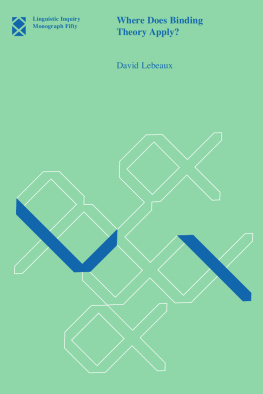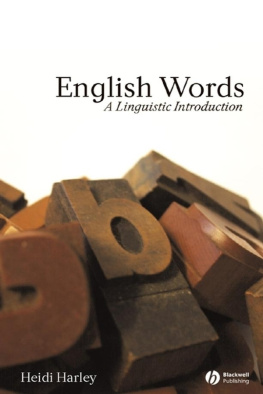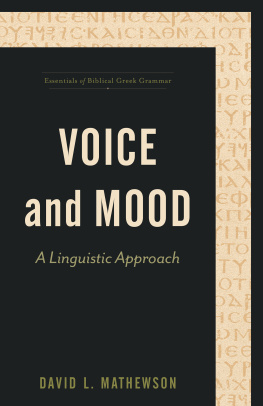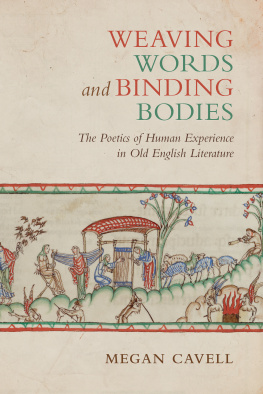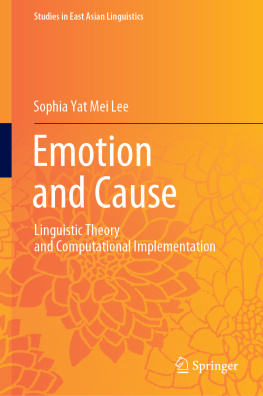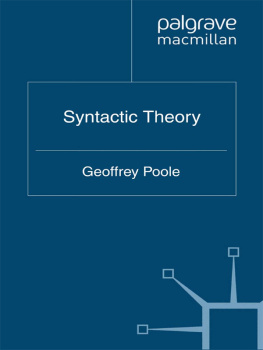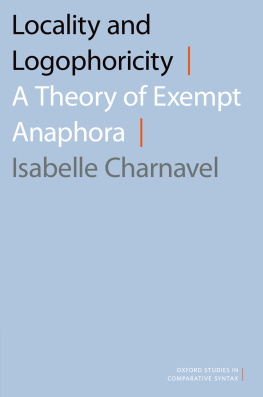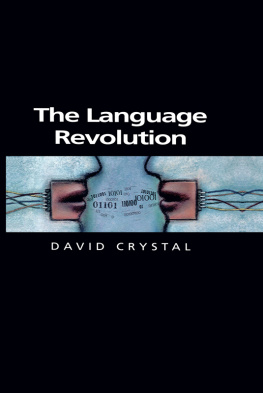David Lebeaux - Where Does Binding Theory Apply? (Linguistic Inquiry Monographs)
Here you can read online David Lebeaux - Where Does Binding Theory Apply? (Linguistic Inquiry Monographs) full text of the book (entire story) in english for free. Download pdf and epub, get meaning, cover and reviews about this ebook. year: 2009, publisher: The MIT Press, genre: Children. Description of the work, (preface) as well as reviews are available. Best literature library LitArk.com created for fans of good reading and offers a wide selection of genres:
Romance novel
Science fiction
Adventure
Detective
Science
History
Home and family
Prose
Art
Politics
Computer
Non-fiction
Religion
Business
Children
Humor
Choose a favorite category and find really read worthwhile books. Enjoy immersion in the world of imagination, feel the emotions of the characters or learn something new for yourself, make an fascinating discovery.
- Book:Where Does Binding Theory Apply? (Linguistic Inquiry Monographs)
- Author:
- Publisher:The MIT Press
- Genre:
- Year:2009
- Rating:3 / 5
- Favourites:Add to favourites
- Your mark:
- 60
- 1
- 2
- 3
- 4
- 5
Where Does Binding Theory Apply? (Linguistic Inquiry Monographs): summary, description and annotation
We offer to read an annotation, description, summary or preface (depends on what the author of the book "Where Does Binding Theory Apply? (Linguistic Inquiry Monographs)" wrote himself). If you haven't found the necessary information about the book — write in the comments, we will try to find it.
David Lebeaux: author's other books
Who wrote Where Does Binding Theory Apply? (Linguistic Inquiry Monographs)? Find out the surname, the name of the author of the book and a list of all author's works by series.
Where Does Binding Theory Apply? (Linguistic Inquiry Monographs) — read online for free the complete book (whole text) full work
Below is the text of the book, divided by pages. System saving the place of the last page read, allows you to conveniently read the book "Where Does Binding Theory Apply? (Linguistic Inquiry Monographs)" online for free, without having to search again every time where you left off. Put a bookmark, and you can go to the page where you finished reading at any time.
Font size:
Interval:
Bookmark:
121220
linguistics
David Lebeaux is an independent
Linguistic Inquiry
Where Does Binding
researcher who specializes in syntax and Monograph Fifty
Lebeaux
Where Does Binding Theory Apply?
the syntactic elements of language acquisi
Wher
Theory Apply?
David Lebeaux
tion. He has held positions at Princeton University, the NEC Research Institute, and This concise but wide-ranging monograph
the University of Maryland, among other
eDoes
examines where the conditions of binding institutions, and is the author of Language PMS
theory apply and in doing so considers the Acquisition and the Form of the Grammar.
David Lebeaux
nature of phrase structure (in particular Binding
how case and theta roles apply) and the
nature of the lexical/functional split.
This long-awaited book by David
PMS
David Lebeaux begins with a revised
Lebeaux is highly recommended to those
formulation of binding theory. He reexam-who pursue tight, albeit indirect, connec
Theory
ines Chomskys conjecture that all conditions between empirical paradigms and the-2945
tions apply at the interfaces, in particular orizing at the most foundational level. His LF (or Logical Form), and argues instead proposal on the theta subtree and the Case Apply?
that all negative conditions, in particular frame points to a new direction of research Condition C, apply continuously through-on cross-linguistic variations.
out the derivation.
Hajime Hoji, Department of Linguistics, Lebeaux draws a distinction between
University of Southern California
positive and negative conditions, which
Lebeaux
have different privileges of occurrence
David Lebeauxs proposals on the binding according to the architecture of the gram-theory over the last ten years have had pro-mar. Negative conditions, he finds, apply found effects on the development of syn-homogeneously throughout the derivation; tax. In this monograph, he examines the
positive conditions apply solely at LF. A architecture of syntactic theory, based on hole in Condition C then forces a reconsid-those proposals, and argues for separate eration of the whole architecture of the structures for thematic and Case represen-grammar. He finds that case and theta reptations, presenting a variety of independent resentations are split apart and are only evidence ranging from very early child
fused at later points in the derivation, after grammar to idiom interpretation. This
movement has applied. Lebeauxs explo
monograph should be among the standard
ration of the relationship between case and references for syntax as it presents an origi-theta theory reveals a relationship of
nal framework that forms a sound basis for greater subtlety and importance than is
any future research on the binding theory.
generally assumed. His arguments should
Mamoru Saito, Professor of Linguistics, interest syntacticians and those curious Nanzan University, and Distinguished
about the foundations of grammar.
Visitor, University of Connecticut
Linguistic Inquiry Monograph 50
The MIT Press
Massachusetts Institute of Technology
Cambridge, Massachusetts 02142
http://mitpress.mit.edu
978-0-262-51271-8
Where Does Binding Theory Apply?
Linguistic Inquiry Monographs
Samuel Jay Keyser, general editor
A complete list of books published in the Linguistic Inquiry Monographs series appears at the back of this book.
Where Does Binding Theory Apply?
David Lebeaux
The MIT Press
Cambridge, Massachusetts
London, England
6 2009 Massachusetts Institute of Technology All rights reserved. No part of this book may be reproduced in any form by any electronic or mechanical means (including photocopying, recording, or information storage and retrieval) without permission in writing from the publisher.
For information about special quantity discounts, please e-mail special_sales@
mitpress.mit.edu
This book was set in Times New Roman and Syntax on 3B2 by Asco Typesetters, Hong Kong. Printed and bound in the United States of America.
Library of Congress Cataloging-in-Publication Data Lebeaux, David.
Where does binding theory apply? / David Lebeaux.
p.
cm.(Linguistic inquiry monograph)
Includes bibliographical references.
ISBN 978-0-262-01290-4 (hard cover : alk. paper)ISBN 978-0-262-51271-8
(pbk. : alk. paper)
1. Government-binding theory (Linguistics) I. Title.
P158.2.L43
2009
415dc22
2008031027
For my late father, Charles, and my mother, Lillian For Father
He is one of the level headed,
and I have been led
past an old barn, an old shed,
into an equilibrium.
In the middle of this pasture,
he is one sure man,
in the center aging faster
and faster, in the sun;
This is the grass he grew,
these his childhood homes,
the green and blue
of his earth and sky
come together here. Father:
this is a strange settling
for you, in the water
of newer homes.
This land is yours
to balance under your feet,
to spread and steady; it pours,
it leaks, it runs.
Deborah Lebeaux
Contents
Series Foreword
ix
Acknowledgments
xxv
Reconstruction Down A-Chains, and the Single Tree Condition 5
More on the Single Tree Condition
Condition C Applies Everywhere
The Structure of the Reconstruction Data (A Hole in Condition C) 29
Two Interesting Constructions
The Architecture of the Derivation
Another Negative Condition
Conclusion
Notes
References
Index
Series Foreword
We are pleased to present the fiftieth in the series Linguistic Inquiry Monographs. These monographs present new and original research be-yond the scope of the article. We hope they will benefit our field by bringing to it perspectives that will stimulate further research and insight.
Originally published in limited edition, the Linguistic Inquiry Monographs are now more widely available. This change is due to the great interest engendered by the series and by the needs of a growing readership.
The editors thank the readers for their support and welcome suggestions about future directions for the series.
Samuel Jay Keyser
for the Editorial Board
This book presents some very simple sentenceswith the potential to reframe our understanding of the entire linguistic system. The argument is slightly complex, and for this reason I include this preface, to summarize and highlight the major points. The argument starts with a revised formulation of binding theory, which is used in turn to investigate the architecture of the grammar, including phrase structure. The book re-examines Chomskys (1995) conjecture:
(1) Chomskys conjecture [interface conjecture]
All conditions apply at the interfaces, in particular LF.
Instead I argue for the following:
(2) Homogeneity conjecture
All negative conditions, in particular Condition C, apply continuously throughout the derivation.
The architecture in (2) is quite dierent from (1) since it implies that the derivation itself has homogeneous constraints holding over it. These constraints rule out any derivation at the point that it violates Condition C: the derivation crashes and it cannot be saved by further operations.
Positive conditions (Condition A, quantificational binding, and quantificational scope read-o ) apply at LF, though they apply over structures over which the information is collected in the course of the derivation, by the copy-and-erasure operation or by leaving a trace. (In a sense, then, they apply over the derivation, but more exactly they apply at LF.) This proposal is close to Chomskys own; it diverges from earlier work by myself and others (Lebeaux 1988, 1991; Burzio 1986; Belletti and Rizzi 1988; Kayne 1984), in which I held that the entire binding theory, including the positive conditions, applied throughout the derivation. The reason for this change is that it appears there is a single tree (the Single Tree xii
Next pageFont size:
Interval:
Bookmark:
Similar books «Where Does Binding Theory Apply? (Linguistic Inquiry Monographs)»
Look at similar books to Where Does Binding Theory Apply? (Linguistic Inquiry Monographs). We have selected literature similar in name and meaning in the hope of providing readers with more options to find new, interesting, not yet read works.
Discussion, reviews of the book Where Does Binding Theory Apply? (Linguistic Inquiry Monographs) and just readers' own opinions. Leave your comments, write what you think about the work, its meaning or the main characters. Specify what exactly you liked and what you didn't like, and why you think so.

